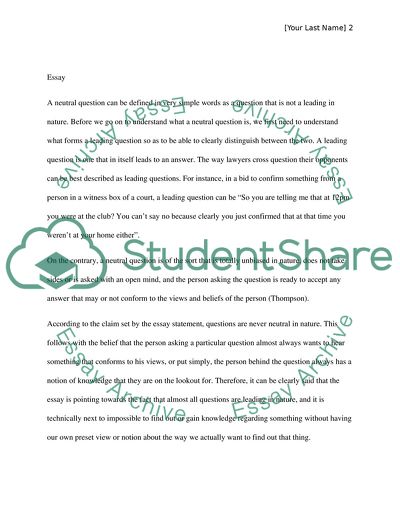Cite this document
(There Is No Such Thing as a Neutral Question Coursework - 4, n.d.)
There Is No Such Thing as a Neutral Question Coursework - 4. https://studentshare.org/philosophy/1858121-there-is-no-such-thing-as-a-neutral-question-evaluate-this-statement-with-reference-to-two-areas-of-knowledge
There Is No Such Thing as a Neutral Question Coursework - 4. https://studentshare.org/philosophy/1858121-there-is-no-such-thing-as-a-neutral-question-evaluate-this-statement-with-reference-to-two-areas-of-knowledge
(There Is No Such Thing As a Neutral Question Coursework - 4)
There Is No Such Thing As a Neutral Question Coursework - 4. https://studentshare.org/philosophy/1858121-there-is-no-such-thing-as-a-neutral-question-evaluate-this-statement-with-reference-to-two-areas-of-knowledge.
There Is No Such Thing As a Neutral Question Coursework - 4. https://studentshare.org/philosophy/1858121-there-is-no-such-thing-as-a-neutral-question-evaluate-this-statement-with-reference-to-two-areas-of-knowledge.
“There Is No Such Thing As a Neutral Question Coursework - 4”. https://studentshare.org/philosophy/1858121-there-is-no-such-thing-as-a-neutral-question-evaluate-this-statement-with-reference-to-two-areas-of-knowledge.


